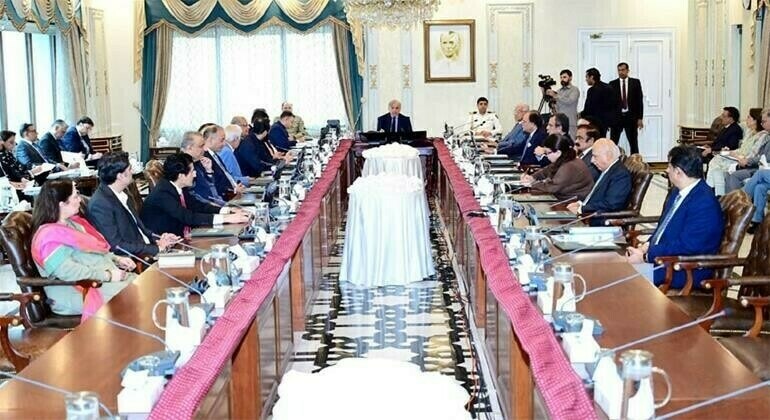ISLAMABAD: Prime Minister Shehbaz Sharif has approved Pakistan’s long-awaited 10-year Indicative Generation Capacity Expansion Plan (IGCEP 2025–35), which is expected to save $17 billion through the rescheduling and removal of 7,967 MW worth of projects.
However, renewable energy projects (solar, wind, and hybrid) proposed by K-Electric (KE) have not been included in the IGCEP 2025–35. KE has instead been instructed to establish its own tie-line (grid station) to receive electricity from the National Grid.
“Generation from Thar and nuclear power is available near KE’s system, and KE can use this to meet its needs. We have done justice with everyone without any discrimination,” said an official on condition of anonymity.
The primary objective of the plan is to ensure affordable and reliable electricity for the public. New projects have been selected based on a minimum-cost principle. The national economic burden is expected to reduce by Rs 474.3 billion, while a national saving of $10 billion (Rs 2,790 billion) has been achieved by rescheduling project completion dates.
According to the government, an additional $7 billion (Rs 1,953 billion) in savings came from dropping 7,967 MW of planned projects. These changes are also expected to reduce electricity tariffs, with an estimated average saving of more than Rs 2 per unit. Officials claim that, for the first time, electricity projects have been selected purely on merit and with full transparency. The plan prioritizes national interest over individual or political gains, cancelling expensive and unnecessary projects.
Under the original IGCEP, 14,984 MW of new projects were proposed. This has now been scaled back to 18 projects totaling 7,017 MW, including Dasu and Mohmand dams. Preference has been given to 7,987 MW of projects based on local resources such as hydro, solar, nuclear, and wind, reducing dependence on imported fuels like coal and gas — a move expected to save billions in foreign exchange annually.
Future power projects will be procured through competitive bidding, with a strong emphasis on private sector participation. The government will no longer purchase surplus electricity, provide sovereign guarantees for new projects, or pay capacity charges on unused generation. “This IGCEP will ensure a cheap, sustainable, and merit-based electricity supply, which will ultimately bring down prices and benefit the country,” said official sources.
They added that strategic projects may be allowed provided their additional costs (Least Cost Violation or LCV) are calculated and borne by the sponsoring agency. For example, Chashma-5 (C-5) was evaluated using the LCV methodology and selected with an LCV of $0.079 billion in FY 2032. However, it was later optimized for commissioning in FY 2038 without any LCV payment. As per the National Electricity Plan 2023–27, LCV costs will apply only for the first six years of operation (FY 2032–37), totaling Rs 14 billion (including financing costs), to be paid in 12 semi-annual installments of Rs 1.17 billion each.
Sources confirmed that the IGCEP will continue to be refined before its final submission to NEPRA, with savings and LCV calculations subject to further review and stakeholder consultation.
The System Operator (NPCC) submitted the draft IGCEP to NEPRA in April 2024. The plan came under significant scrutiny due to emerging sectoral dynamics — including falling electricity demand, increasing net metering, and a backlog of committed capacity additions — all of which raised concerns about the future cost burden on consumers.
The draft IGCEP 2024–34 included 25,973 MW of new capacity, of which 25,573 MW (98.5%) was classified as committed, leaving only 400 MW (1.5%) as candidate capacity open for optimization. The plan had a Net Present Value (NPV) of $64.30 billion, comprising $42.61 billion in fixed costs and $21.69 billion in generation costs.
Given the heavy reliance on committed projects and declining demand, a detailed review of the criteria for committed capacity was conducted. Of the 73 projects initially classified as committed in the IGCEP 2021–31 (totaling 22,418 MW), 7,434 MW had been commissioned by end-2024. The remaining 14,984 MW were re-evaluated based on updated criteria, which include: (i) for private power producers: achieving financial close and; (ii) For public projects: (a) financial commitments secured: (b) construction progress above 10%, and (c) financial progress exceeding 10%.
Copyright Business Recorder, 2025


